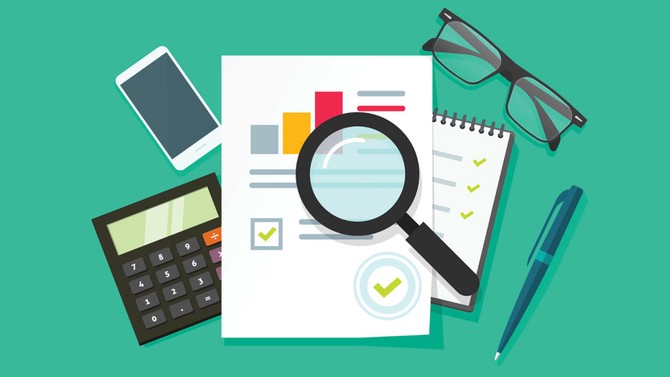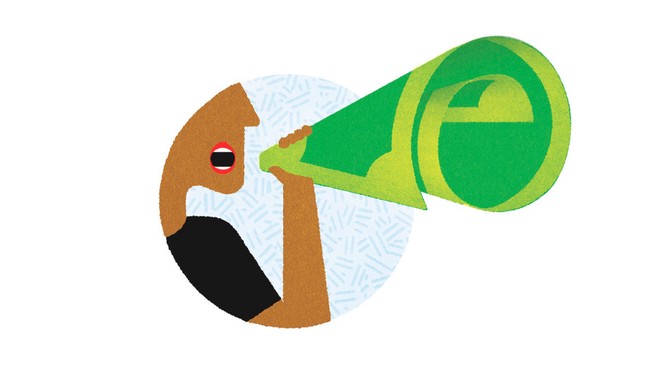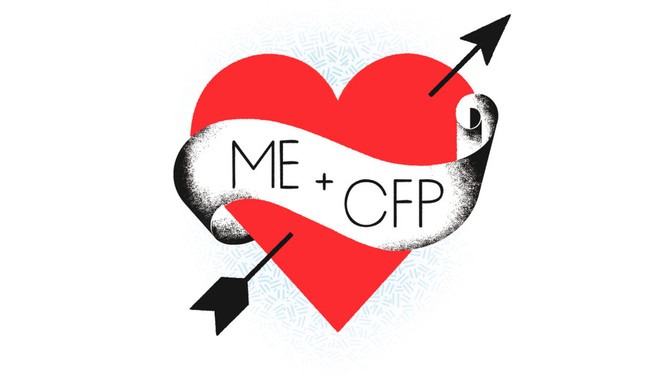Questions You Need to Ask Before Hiring a Financial Advisor
There's no need to go it alone: Teaming up with a money pro may give you a more optimistic fiscal outlook.
By Farnoosh Torabi

Photo: photospower/iStock
Finding That Special Someone
Your savvy friend raves about her financial adviser and her accountant—she even hired a money coach once. Should you be shelling out, too? Spending cash on expert help may seem illogical—you're trying to save money. But these specialists' years of training mean they're equipped to save you time and improve your bottom line.
About a third of women work with a pro, according to a Prudential survey. And they're twice as likely as those who go it alone to say they're on track or ahead of schedule in planning for their future. “People who work with financial advisers have more money and say they're happier,” says Jamie Hopkins of the American College of Financial Services, which offers degrees and certifications. But as with any investment, you shouldn't go in blind. Here's when it's wise to outsource, what to expect, and how to capitalize on your new relationship.
About a third of women work with a pro, according to a Prudential survey. And they're twice as likely as those who go it alone to say they're on track or ahead of schedule in planning for their future. “People who work with financial advisers have more money and say they're happier,” says Jamie Hopkins of the American College of Financial Services, which offers degrees and certifications. But as with any investment, you shouldn't go in blind. Here's when it's wise to outsource, what to expect, and how to capitalize on your new relationship.

Photo: Lan Truong
When's the Right Time to Hire Someone?
You're asking yourself some major money questions:
Will I have enough for my retirement?
If I buy a house this year, how can I still save for my kids' college?
I'm a single mom: How much life insurance should I have?
If you're financially puzzled or just need reassurance, it may be time for sound professional help. When my husband and I tied the knot five years ago, we enlisted a financial adviser to counsel us (i.e., minimize our money battles) and help us fill in some blanks about life insurance, estate planning, and even college savings accounts for our yet-to-be-born kids.
To find a pro, consult the National Association of Personal Financial Advisors (napfa.org), which maintains a database of qualified advisers searchable by location (though some are also happy to connect virtually). Take time to interview them— we met with three before picking a winner.
If you're financially puzzled or just need reassurance, it may be time for sound professional help. When my husband and I tied the knot five years ago, we enlisted a financial adviser to counsel us (i.e., minimize our money battles) and help us fill in some blanks about life insurance, estate planning, and even college savings accounts for our yet-to-be-born kids.
To find a pro, consult the National Association of Personal Financial Advisors (napfa.org), which maintains a database of qualified advisers searchable by location (though some are also happy to connect virtually). Take time to interview them— we met with three before picking a winner.

Photo: vladwel/iStock
These Should Be Your Top Three Questions:
1. What are your qualifications?
Look for the certified financial planner (CFP) title, the gold standard in the industry. To earn the title, CFPs must pass an extensive exam, participate in ongoing education, and follow a code of ethics.
2. How do you make money?
Advisers usually earn cash one of three ways: commissions on products they sell you (not ideal if you're seeking unbiased advice), an annual percentage (often 1 percent) deducted from your managed investments, or a one-time fee to create a customized financial plan and/or hourly or monthly meeting fees. “An entry-level plan can run from $800 to $1,200,” says Bob Morrison, a Denver-based wealth manager and accountant. And monthly fees from XY Planning Network, an organization of advisers, typically fall between $75 and $250.
3. Are you a fiduciary?
The term describes asset managers who put your financial interests before theirs, even if they pocket less money. “Surprisingly, they're not all required to adhere to that standard,” says CFP Carrie Houchins-Witt.
Finally, ask yourself: Do I like this person? Does he or she get me? It's essential to find someone who appreciates your needs and goals, has clients who are in the same boat as you, and takes time to listen.
Look for the certified financial planner (CFP) title, the gold standard in the industry. To earn the title, CFPs must pass an extensive exam, participate in ongoing education, and follow a code of ethics.
2. How do you make money?
Advisers usually earn cash one of three ways: commissions on products they sell you (not ideal if you're seeking unbiased advice), an annual percentage (often 1 percent) deducted from your managed investments, or a one-time fee to create a customized financial plan and/or hourly or monthly meeting fees. “An entry-level plan can run from $800 to $1,200,” says Bob Morrison, a Denver-based wealth manager and accountant. And monthly fees from XY Planning Network, an organization of advisers, typically fall between $75 and $250.
3. Are you a fiduciary?
The term describes asset managers who put your financial interests before theirs, even if they pocket less money. “Surprisingly, they're not all required to adhere to that standard,” says CFP Carrie Houchins-Witt.
Finally, ask yourself: Do I like this person? Does he or she get me? It's essential to find someone who appreciates your needs and goals, has clients who are in the same boat as you, and takes time to listen.

Photo: Lan Truong
Get a Coach In Your Corner
In lieu of hiring a long-term financial adviser, you might opt to work with a money coach to help you develop a healthier relationship with your cash. “I teach people how to align their spending, saving, and earning with their values,” says Carrie Friedberg, a money coach in Palo Alto, California.
If you're struggling with the fiscal aftermath of a divorce, dealing with money conflicts in a relationship, or recovering from troubled family finances, a coach may be ideal, says Friedberg. “Money coaches can analyze the subconscious behaviors and emotions driving the client's decisions,” says Deborah Price, CEO and founder of the Money Coaching Institute. It's an unregulated field, so certification isn't mandatory. But you can ask about a coach's training, get feedback from her clients, and learn about her methodology. Coaching can cost $50 to $600 per hour. If your coach is also a CFP and you're getting both behavioral and numbers advice, the rate will typically be $250 to $500 per hour, says Price—a small price to pay for big-time guidance.
If you're struggling with the fiscal aftermath of a divorce, dealing with money conflicts in a relationship, or recovering from troubled family finances, a coach may be ideal, says Friedberg. “Money coaches can analyze the subconscious behaviors and emotions driving the client's decisions,” says Deborah Price, CEO and founder of the Money Coaching Institute. It's an unregulated field, so certification isn't mandatory. But you can ask about a coach's training, get feedback from her clients, and learn about her methodology. Coaching can cost $50 to $600 per hour. If your coach is also a CFP and you're getting both behavioral and numbers advice, the rate will typically be $250 to $500 per hour, says Price—a small price to pay for big-time guidance.

Photo: Lan Truong
What Women Want
To earn their business, says a Prudential survey, women want financial planners to:
Use less jargon
Be ethically strong
Place their customers' interests first
Another recent survey found that only 1 in 5 women believe they're “very well prepared” to make financial decisions.
Farnoosh Torabi is a personal finance expert, the author of When She Makes More, and the host of CNBC's Follow the Leader and the award-winning podcast So Money.
Want more stories like this delivered to your inbox? Sign up for the Oprah.com Money Newsletter!
Another recent survey found that only 1 in 5 women believe they're “very well prepared” to make financial decisions.
Farnoosh Torabi is a personal finance expert, the author of When She Makes More, and the host of CNBC's Follow the Leader and the award-winning podcast So Money.
Want more stories like this delivered to your inbox? Sign up for the Oprah.com Money Newsletter!
From the June 2017 issue of O, The Oprah Magazine
As a reminder, always consult your doctor for medical advice and treatment before starting any program.

